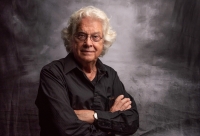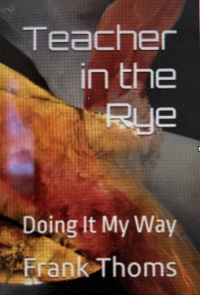Dining alone; A old issue in new clothes
"Today, I, and many other teachers find ourselves first ministering to the emptiness within our students, knowing that until that space is healed, they do not, cannot, care enough to learn. I have faith that the young people I teach today will find their way just as the generations before them have, but I wish in their homes, they felt less like uninvited guests."
Rubenstein’s insight is old news. The ‘emptiness within students’ that she observed in 1999 appears twenty-five years later in students in their incessant comings-and-goings on smartphones, invitations to inattention, a new form of emptiness.
Addressing classroom teachers as colleagues today, I would say, “We, too, face students who act like ‘uninvited guests,’ who can hardly face us, their minds looking down at smartphones in their laps (or wanting to). We note their ‘emptiness’ when we ask for reflective thoughts. We feel it watching them struggle to look at each other in the eye––and at us.
“We feel it when they don’t pursue ideas. When they don’t pick up on a classmate’s insight. And we feel it when they don’t remember yesterday’s lesson or forget to do their homework.
“We decide, then, not to put our heads in the sand waiting for them to act and think. We invent ways to create ‘the stability of the family dinner’ in our classroom, to connect with them, have them connect with each other, and make learning relevant, exciting, challenging, worthwhile. We can do no less.”
Do you feel an ‘emptiness’ in your students? Do you see them enter your room not greeting you or each other. Some slouch in their seats and stare out the window appearing passive, looking askance, withdrawing, perhaps drinking a coffee. Others twirl their hair with an uninterested gaze, rolling their eyes when you begin a lesson.
You know your students are more than that, much more than that. You want to energize their passivity and invoke Rubenstein’s words, “faith that the young people I teach today will find their way just as the generations before them have.” You bring your best self believing in them.
You would be wise to have a conversation with your students about how you’d like them to be in your classroom. A conversation without condemnation. Without preaching. And honestly engage them, “knowing that until that space is healed, they [will] not, cannot, care enough to learn.”
And those of you outside the classroom, encourage teachers to fill the emptiness in their students.

